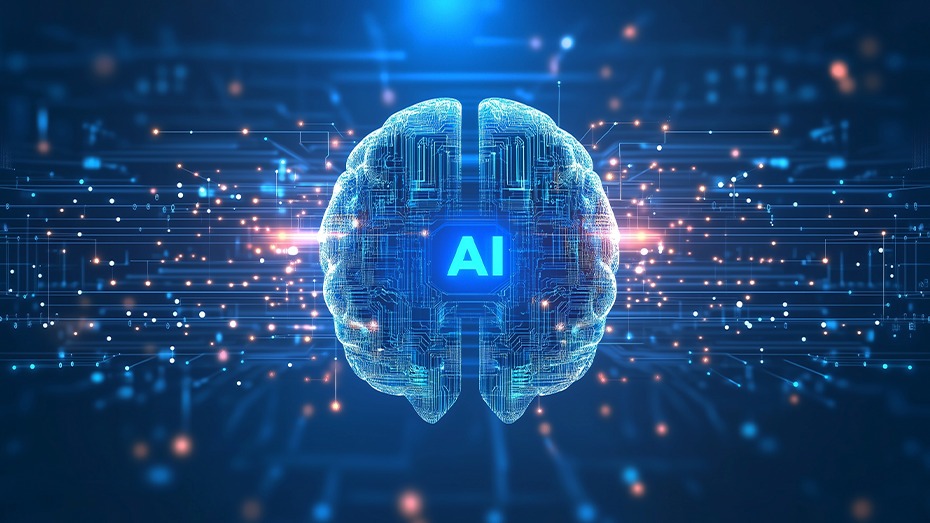The Future of AI Development: Trends and Innovations in 2025
AI (Artificial Intelligence) is constantly redefining how we live and work on an everyday basis. 2025 has begun, and the future of AI has started unfolding before the world. AI will be an important element of a wide range of industries as well as our routine lives, impacting sectors such as business, climate change, and healthcare. Cutting-edge technologies like ML (machine learning), quantum computing, ethical AI, and deep learning will drive such changes.
While AI brings a variety of benefits to the table, it also raises several types of challenges, such as job displacement, privacy concerns, and ethical questions. As AI gains more and more power and acceptance in the world, it will restructure the workforce and industries, requiring people to adapt. In this article, we’ll dive into the future of AI and discuss top trends, trying to unlock how it may change the world in the years that follow.
AI’s Impact on the Transformation of Industries
2025 will witness a drastic shift in workforce patterns, particularly via automation. Jobs in domains such as customer service, manufacturing, and retail that call for monotonous tasks will increasingly be carried out by AI. This will ensure higher efficiency and lower capital investment for businesses of all sizes and types. However, while some of the jobs can be replaced, new opportunities will also come up in areas such as AI development, data science, and cybersecurity.
- Job Dynamics: While some of the jobs may cease to exist, the future of AI holds promising new job opportunities in data-driven and tech domains.
- Upscaling Staff: Businesses will call for investment in several training programs to assist employees with adaptation to an AI-fueled world.
Moreover, AI will contribute towards a reinforced human-AI collaboration. In industries like healthcare, AI will assist doctors in performing surgeries, diagnosing diseases, providing customized treatment plans, and automating daily tasks. This will help professionals focus on more sophisticated issues and foster innovation in businesses and organizations.
Core Innovations that shape AI
The progress of AI will depend heavily on the advancements made in technologies such as machine learning and quantum computing. The future of AI will also include leveraging quantum computing to perform complex calculations, unlocking new possibilities in domains such as climate science, finance, and medicine. For example, AI systems fueled by quantum computing will help in discovering new drugs or generate precise weather forecasts.
- Rapid Information Processing: Quantum computing will help in processing huge volumes of data, and solving problems quicker.
- Sophisticated Research: Quantum AI could also lead to breakthroughs in sectors that were too difficult for conventional computing.
At the same time, ML (machine learning) and deep learning continue improving their capabilities. Many experts believe that the future of AI will feature technologies working together in harmony, to boost decision-making. For instance, AI could improve self-driving cars and facial recognition, making them more dependable.
- Enhanced Decision-Making: ML will boost AI’s ability to resolve complex issues in domains such as cybersecurity and medicine.
- Sophisticated Models: Seamlessly integrated deep learning models will assist AI in carrying out exponentially difficult tasks.
- Edge computing: By processing information locally instead of depending on the cloud servers, AI systems will be able to make faster decisions, which is crucial for self-driving cars and health devices.
- Real-Time Management: Edge computing will enable rapid decision-making in time-sensitive scenarios such as autonomous driving.
Managing the Social Impacts of AI
The future of AI will also include better management of associated ethical issues. One of the primary issues is the bias in AI frameworks. Since AI picks learnings from existing information, it can form a biased approach or perspective from it. This may lead to unfair outcomes like AI systems favouring certain groups over others when practising law enforcement or other similar domains.
- Managing Bias: Diverse data and better algorithms are needed to reduce bias in AI systems.
- All-inclusive Guidelines: Clear ethical standards will be necessary to ensure fairness and transparency in AI development.
Another challenge when speaking of the future of AI, would be the variety of privacy concerns that tag along its integration with legacy systems. AI systems depend on huge volumes of personal information to operate. As AI evolves, stronger information security regulations will be required to protect privacy and ensure user information is used responsibly. Users must always have control over their information and comprehend how it is being leveraged.
- Enhanced Privacy Laws: Stricter regulations will assist businesses and organizations in safeguarding user data and prevent misuse.
- Accountability: AI systems will also become more transparent about how they gather and leverage the personal information of users.
Autonomous AI systems, like self-driving cars, will also raise a wide range of ethical questions for the future of AI. In scenarios where an accident turns out to be unavoidable, how shall AI decide what or who to prioritize? These types of circumstances will call for guidelines and careful consideration to ensure that AI acts responsibly.
Reshaping Business, Healthcare, and Beyond
AI is already transforming a variety of industries, and in 2025, its influence will pick up more pace. In healthcare, AI will be leveraged to diagnose diseases proactively and precisely. It will also help with the creation of customized treatments by processing medical information, like genetic data, to provide treatments that suit individual requirements. This would mean faster and more effective healthcare for patients.
- Personalized Care: AI Development services will assist doctors with treatment recommendations based on patient data.
- Cost Efficiency: AI will automate tasks of various types, bringing down costs and enhancing access to healthcare.
For businesses, AI will drive personalised offerings, providing customers custom suggestions based on their preferences. Virtual assistants and chatbots will manage customer service inquiries, allowing businesses to operate 24/7.
- Customized Engagement: AI will help businesses perceive customer preferences and provide tailored experiences.
- AI-powered Customer Service: Virtual assistants and Chatbots will guarantee round-the-clock assistance to users.
In sustainability, AI will help with the reduction of waste by optimizing overall power consumption. In agriculture, Artificial Intelligence will assist farmers with the detection of crop diseases proactively and boost irrigation practices, minimizing environmental impact.
Blending Technology with Art
In 2025, AI will also play a considerable role in the sector of creativity and art. In the music industry, AI will assist in composing original soundtracks by processing existing music and developing new harmonies and melodies that combine different genres. Artists and musicians will leverage AI as a tool to unlock new creative possibilities.
- AI in Music: AI will help develop brand-new music compositions by bringing together unique sounds and styles.
- AI in Art Creation: AI will inspire and introduce a variety of new ways to generate digital sculptures and paintings.
In visual arts, an AI consulting company will be able to assist artists with the creation of digital art. By processing a wide range of artistic trends and patterns, AI will offer recommendations and help with creative decision-making.
Conclusion:
Looking a decade ahead, AI will possibly become a bigger, more advanced, and larger version of what it is right now. It’ll be an integral part of our daily lives, defining how we work, live, and solve global problems. It will assist in handling challenges such as medical access, climate change, and poverty, through smarter and more sophisticated systems.
In this journey, implementing a POC in Software Development will be essential to test innovative AI solutions before full-scale deployment, ensuring their feasibility, impact, and alignment with ethical goals. However, its development has to be guided by robust ethical standards and strict regulations to guarantee fairness, privacy, and transparency. With effective guidelines in place, AI will boost creativity, sustainability, and productivity, while lowering potential risks. The future of AI seems to be bright, and with monitored management, it can revolutionize society for the better.






